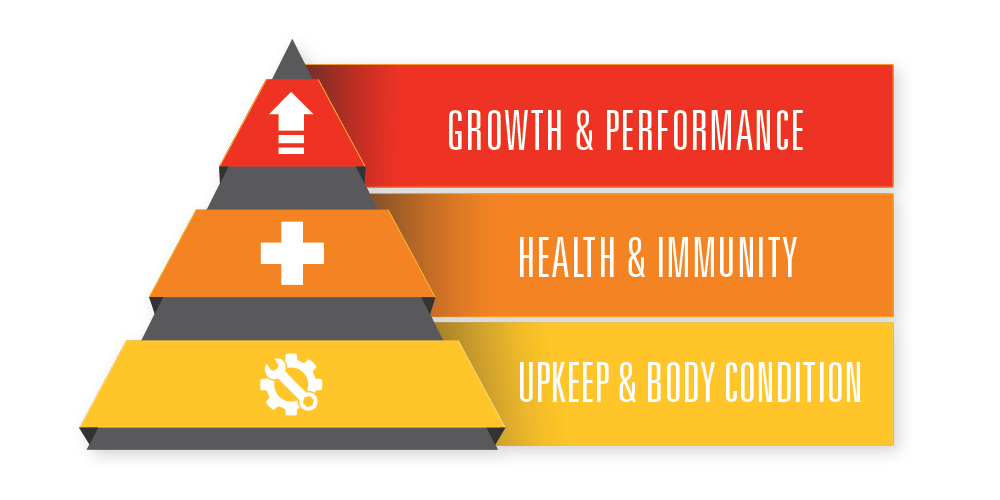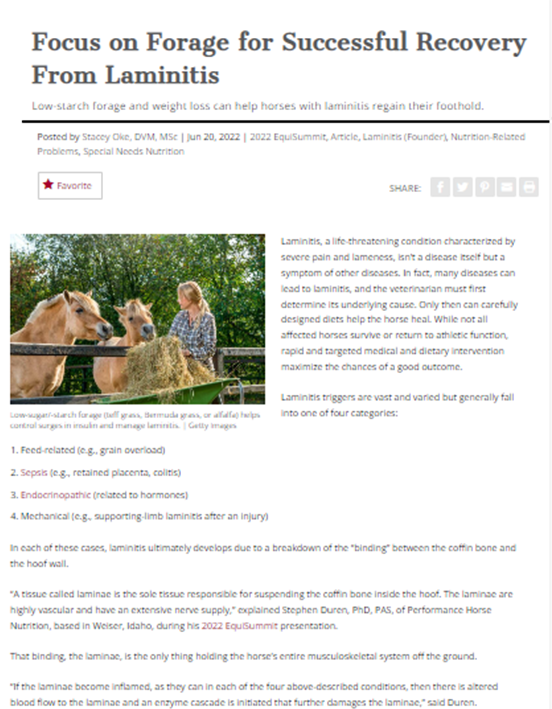The Stress Connection
Under stress, your horse’s adrenal gland releases cortisol – a stress hormone. Cortisol re-directs nutrients to be used as part of the fight-or-flight response. This response counterbalances the action of insulin. In short term situations (e.g. exercise), this can be beneficial. However, when exposed to chronic, repeated or layered stressors, elevated cortisol levels can have a detrimental impact on your horse. The resulting redirection of energy can inhibit the immune system and reduce physical performance, and worst of all, lead to insulin resistance.
Proper management of stress in conjunction with functional nutrition may result in lower cortisol levels thus limiting the interference with proper insulin function. KemTRACE® Chromium has been shown to mitigate the release of cortisol and increase insulin sensitivity.3





